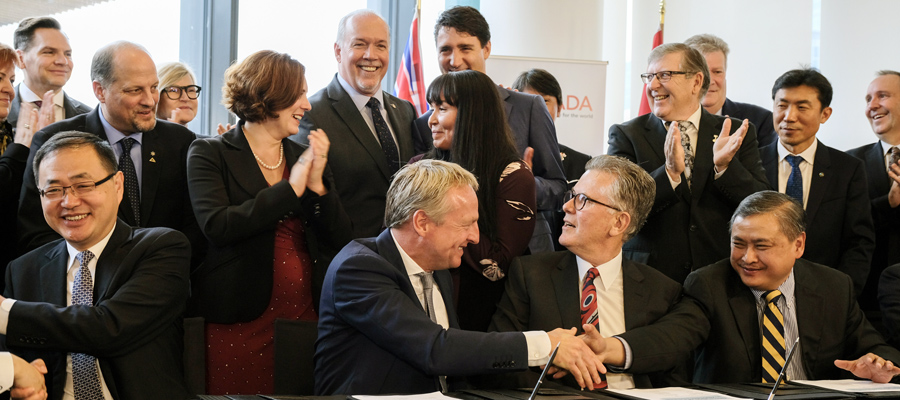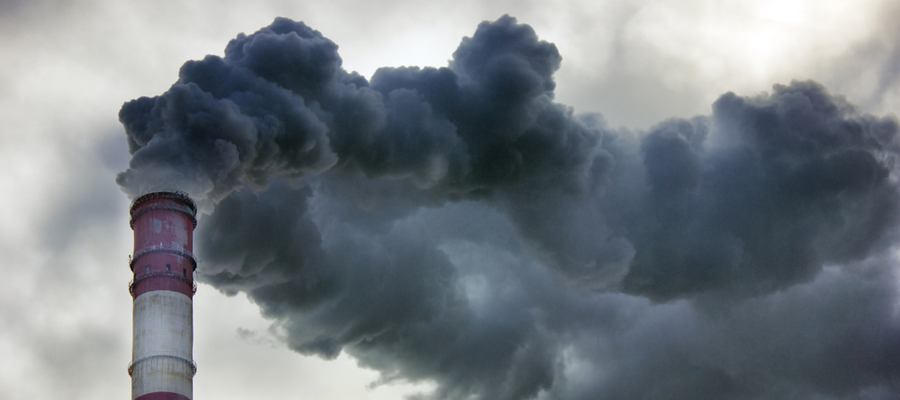Spending What It Takes: Transformational climate investments for long-term prosperity in Canada

The world is confronted with a slew of accelerating and converging crises, from climate change and biodiversity loss to energy insecurity, unaffordable living and rising inequality. In the face of these challenges, Canada must urgently and equitably decarbonize every sector of the economy both to contribute our fair share of the global climate effort and to ensure Canada’s long-term prosperity in a low-carbon global economy.
It is a daunting task facing a country that has long depended on fossil fuel extraction and consumption to drive the economy, and only through an ambitious, well-funded and publicly-coordinated transition effort are we likely to succeed at this complex and far-reaching project.
Spending What It Takes: Transformational climate investments for long-term prosperity in Canada proposes a comprehensive, $287 billion plan for public investment in a green economy, drawing on the recommendations of Climate Action Network – Réseau action climat (CAN-Rac) Canada members and other organizations working on climate policy in Canada today, including expert insights from a variety of research institutes, environmental organizations, academic bodies and activist groups. The report lays out the current state of public climate spending in Canada before turning to a forward-looking, sector-by-sector breakdown of necessary clean economy spending consistent with a net-zero economy by 2050.
The report finds that the government of Canada is currently spending about $10 billion per year—soon rising to $15 billion per year, or about 0.5% of GDP—on greenhouse gas emission reduction efforts across several sectors of the economy (all figures CAD unless otherwise noted). While these initiatives lay an important foundation for decarbonization, this level of spending is insufficient for achieving net-zero emissions by 2050.
The alternative climate investment plan described in this report amounts to new public spending of $287 billion over five years (an average of $57 billion per year) above and beyond currently planned spending, which would be equivalent to approximately 2% of GDP. Early, ambitious investments on this scale will drive deep decarbonization in every sector of the Canadian economy and put the country on track to achieve its legislated climate commitments by mid-century.
These necessary climate investments include:
- $25 billion to support Indigenous-led climate policies and solutions and the effective inclusion of Indigenous peoples at decision-making tables as rights-holders;
- $20 billion to build a clean electricity grid with a focus on interregional transmission and targeted investments in rural, remote and Indigenous communities;
- $66.5 billion to make homes and buildings more energy efficient through retrofitting programs and workforce development initiatives;
- $40 billion to accelerate zero-carbon mobility by providing stable, long-term funding for public transit and expanding intercity passenger options;
- $4 billion to grow food more sustainably through the adoption of proven lower-carbon farm management practices;
- $80 billion to support good jobs and vibrant communities by targeting public investments in the communities facing the most challenging transitions, creating new benefits for workers in transition, and establishing a youth climate corp to create good, green jobs that accelerate climate action;
- $25 billion to build a more resilient society through transfers to the provinces for climate adaptation;
- $5.3 billion to support global climate action with new grants, rather than loans, to the developing countries most impacted by climate change with the least historical responsibility; and,
- $21 billion to protect and restore nature, including the remediation of fossil fuel sites and the expansion of zero-waste recycling initiatives.
New “green strings” must also be attached to existing funding and financing mechanisms to ensure no more public money is used to subsidize fossil fuels or otherwise undermine the imperative of a just transition to a net-zero economy.
While $287 billion represents a significant and unprecedented level of climate spending, new investments on the proposed scale are well within the fiscal capacity of the federal government. For comparison, our proposed annual expenditures amount to just 11 weeks of COVID-19 pandemic support spending.
As rising interest rates threaten to drive the Canadian economy into recession, massive new spending on zero-carbon solutions has the potential to simultaneously cut emissions, stimulate the economy, and alleviate inflationary pressures through the replacement of volatile fossil fuel energy—a major cause of recent inflation—with more stable, secure renewables. Pulling it off will require strategic coordination of energy supply and demand, efforts to build resilience to climate impacts and supply-chain disruptions, and policies to ensure the Canadians most vulnerable to inflation are supported.
Our plan will bring a long-term return on investment from strategic infrastructure, redirect planned public and private spending away from fossil fuel infrastructure, and reduce the costs of climate inaction, which loom ever-larger as Canada suffers increasingly severe, frequent and costly extreme weather events. It will also make life more affordable for Canadians through lower home energy costs from a clean electricity grid and more convenient public and active transportation options—making it easier for people to make climate-friendly choices.
For Canada to do its part in the fight against climate change, to compete in the fossil-free global economy of the 21st century, and to ensure a prosperous and inclusive future at home, we need a climate investment plan with more ambition than Canada has seen so far. Our recommendations will redirect the Canadian economy toward a future of good jobs, healthy communities and economic stability for the benefit of all.
This is the Executive Summary of the Spending What It Takes report by the Canadian Centre for Policy Alternatives (CCPA) and Climate Action Network – Réseau action climat (CAN-Rac) Canada.
Topics: Climate change & energy policy



